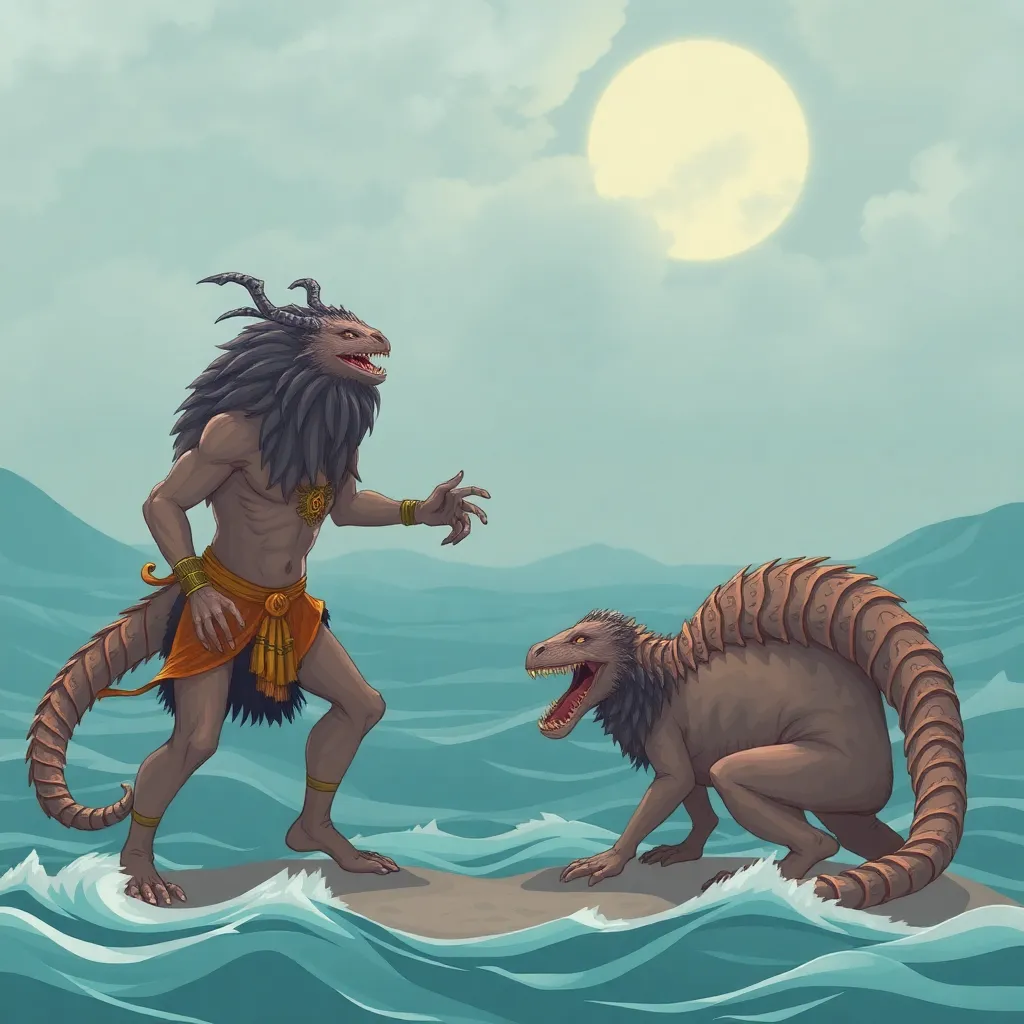The Role of Mythical Creatures in The Odyssey: Lessons and Morals
I. Introduction
“The Odyssey,” attributed to the ancient Greek poet Homer, is one of the most celebrated works of literature in history. This epic poem narrates the long and arduous journey of Odysseus as he attempts to return home after the Trojan War. Central to the narrative are the mythical creatures that inhabit Odysseus’s world, each embodying various themes and moral lessons that resonate through time.
Mythical creatures in “The Odyssey” serve not only as obstacles and challenges for Odysseus but also as reflections of human nature and societal values. This article aims to explore the lessons and morals conveyed through these beings, highlighting their significance in Greek mythology and their relevance to modern readers.
II. The Significance of Mythical Creatures in Greek Mythology
Mythical creatures are defined as supernatural beings that often possess extraordinary abilities or characteristics. In Greek mythology, these beings range from monstrous giants to enchanting nymphs, each playing crucial roles in the stories and myths of the time.
- Definition and Characteristics: Mythical creatures often embody human traits, fears, and aspirations, serving as allegories for various aspects of the human experience.
- Role in Ancient Greek Culture: They were essential in storytelling, acting as symbols for moral lessons, cultural norms, and the struggles faced by humanity.
- Connection to Human Emotions: These creatures illustrate profound emotional experiences, allowing audiences to relate their own struggles and triumphs to the narratives.
III. The Cyclopes: The Dangers of Hubris and Isolation
The Cyclopes, particularly the famous giant Polyphemus, are depicted as one-eyed monsters living in isolation on a remote island. In “The Odyssey,” Odysseus and his men encounter Polyphemus after being trapped in his cave.
This encounter serves as a pivotal moment in the narrative, showcasing the dangers of hubris and isolation. Odysseus’s cleverness allows him to escape, but not without consequences for his crew.
- Polyphemus’s Pride: The Cyclops displays extreme pride and a lack of respect for the gods, which ultimately leads to his downfall.
- Odysseus’s Strategy: By cunningly identifying himself as “Nobody,” Odysseus outsmarts Polyphemus, highlighting the importance of intellect over brute strength.
The moral lesson of this encounter emphasizes the consequences of pride and the importance of community—traits that are essential for survival and success.
IV. Sirens: Temptation and the Perils of Desire
The Sirens are mythical beings known for their enchanting voices that lure sailors to their doom. In “The Odyssey,” as Odysseus and his crew sail past their island, they encounter this perilous temptation.
Odysseus, forewarned by Circe, devises a plan to resist the Sirens’ call by having his men plug their ears with beeswax and tie him to the mast of the ship.
- Portrayal of Sirens: The Sirens symbolize irresistible temptation and the dangers of succumbing to desire.
- Odysseus’s Cleverness: His foresight and self-control demonstrate the importance of navigating desires wisely.
The moral lesson here revolves around the need for self-control and the ability to resist temptation, a theme that resonates in various aspects of modern life.
V. Circe: Transformation and the Power of Knowledge
Circe, a powerful sorceress, resides on the island of Aiaia, where she transforms Odysseus’s crew into animals. However, through Hermes’s guidance, Odysseus is able to resist her magic and ultimately befriends her.
This encounter highlights the duality of knowledge—how it can be used for both good and evil.
- Introduction to Circe: Circe’s character represents the complexities of power and transformation.
- Odysseus’s Experience: By learning from Circe and gaining her trust, Odysseus is able to restore his crew and gain valuable knowledge for his journey ahead.
The moral lesson emphasizes the importance of wisdom and the power of knowledge in overcoming adversity, showcasing that understanding can lead to redemption.
VI. Scylla and Charybdis: The Complexity of Choices
Scylla and Charybdis are two monstrous entities that reside on opposite sides of a narrow strait. Odysseus must navigate between them, facing the harrowing reality of making difficult choices.
This scenario symbolizes the complexities of life and the difficult decisions that often come with it.
- Symbolism of Scylla and Charybdis: They represent the idea that one must sometimes choose the lesser of two evils.
- Odysseus’s Navigation: By strategically choosing to confront Scylla and sacrifice a few men rather than risk the entire ship to Charybdis, Odysseus embodies the necessity of making tough choices.
The moral lesson here reflects the importance of decision-making in life and the acceptance of consequences that come with those choices.
VII. The Role of the Gods and Goddesses in Shaping Encounters with Mythical Creatures
The divine beings in “The Odyssey” significantly influence Odysseus’s journey. From Athena’s guidance to Poseidon’s wrath, the gods play pivotal roles in shaping encounters with mythical creatures.
- Influence of Divine Beings: The intervention of gods often reflects the relationship between mortals and the divine, illustrating themes of fate and free will.
- Interplay Between Fate and Free Will: Odysseus’s journey underscores how divine intervention can alter paths, yet it is ultimately his choices that determine his fate.
The moral reflections on divine intervention emphasize the balance between human agency and the whims of the gods, reminding us of the unpredictable nature of life.
VIII. Conclusion
The mythical creatures encountered in “The Odyssey” serve as more than mere obstacles; they embody timeless lessons and morals that continue to resonate today. From the dangers of hubris represented by the Cyclopes to the complexities of choice symbolized by Scylla and Charybdis, each creature offers profound insights into the human experience.
These lessons remain relevant in contemporary society, reminding us of the importance of self-control, wisdom, community, and the ability to navigate life’s challenges. As we continue to explore the enduring legacy of mythical creatures in literature and culture, we find that their stories continue to inspire and teach valuable lessons across generations.




